Deploying MongoDB Helm Chart
Introduction
Let's assume that you are creating an application and want to use mongodb to store data of your application. You can deploy mongodb using bitnami/mongodb Helm chart and connect it to your application.
This guide will introduce you to how to deploy the mongoDB's Helm chart.
1. Discover the Chart from the Chart Store
Visit the Chart Store page by clicking on Charts present on left panel and find bitnami/mongodb Helm Chart. You also can search mongodb chart using the search bar.
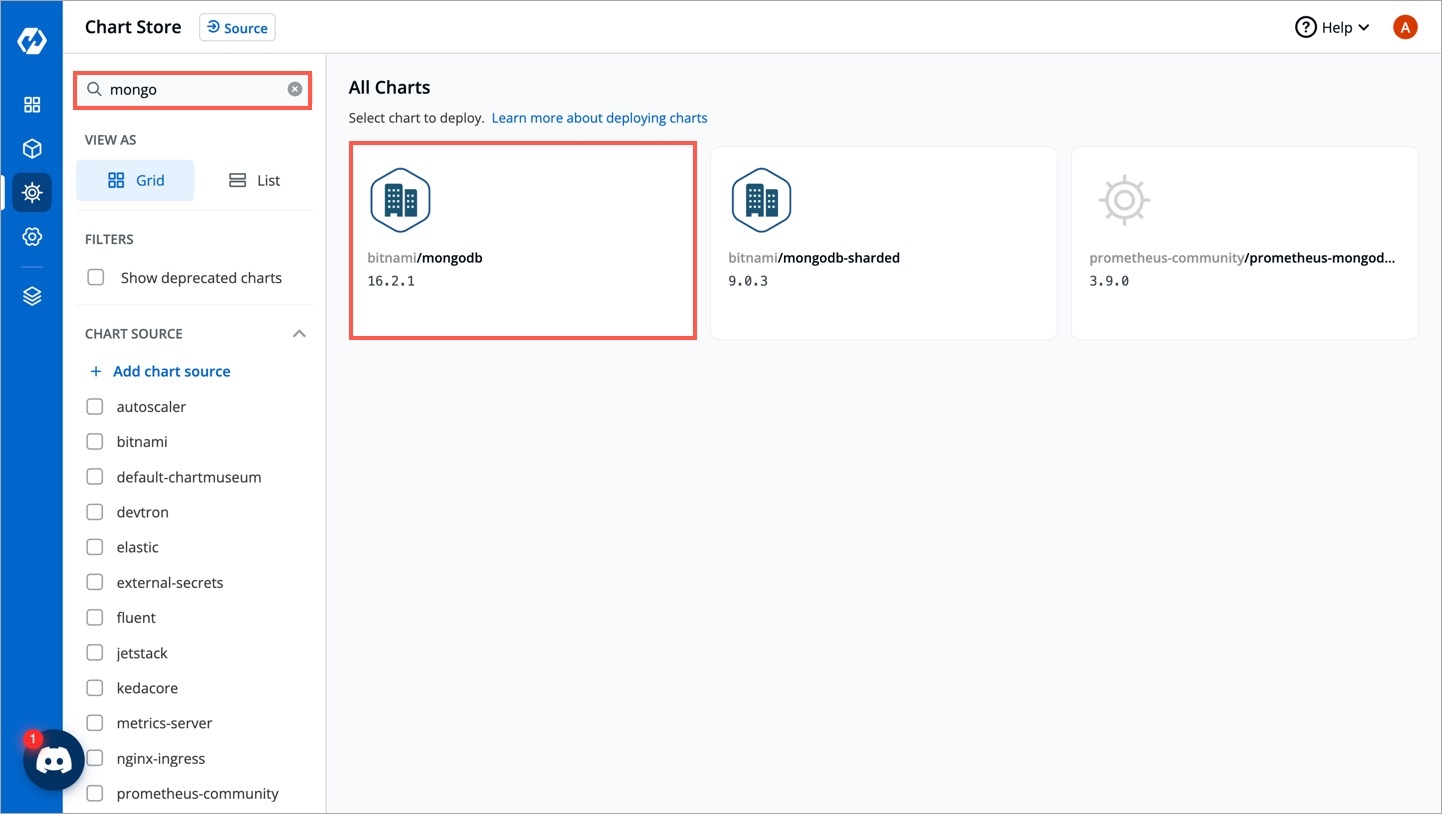
2. Configure the Chart
After selecting the
bitnami/mongodbHelm chart, click onConfigure & Deploy.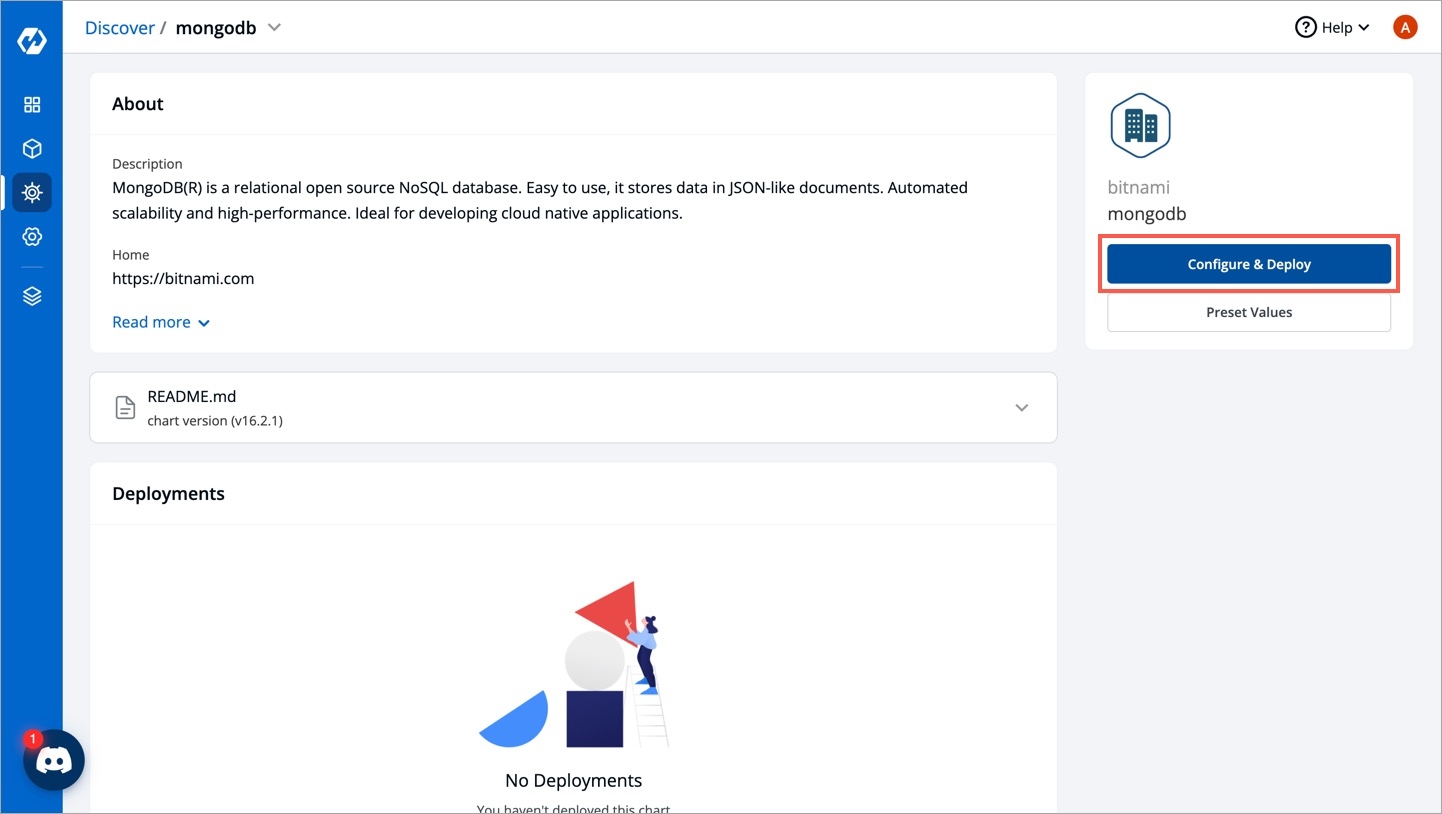
Enter the following details before deploying the mongoDB chart:
KeyDescriptionApp NameName of the Chart
ProjectSelect the name of your Project in which you want to deploy the chart
EnvironmentSelect the environment in which you want to deploy the chart
Chart VersionSelect the latest Chart Version
Chart ValueSelect the latest default value or create a custom value
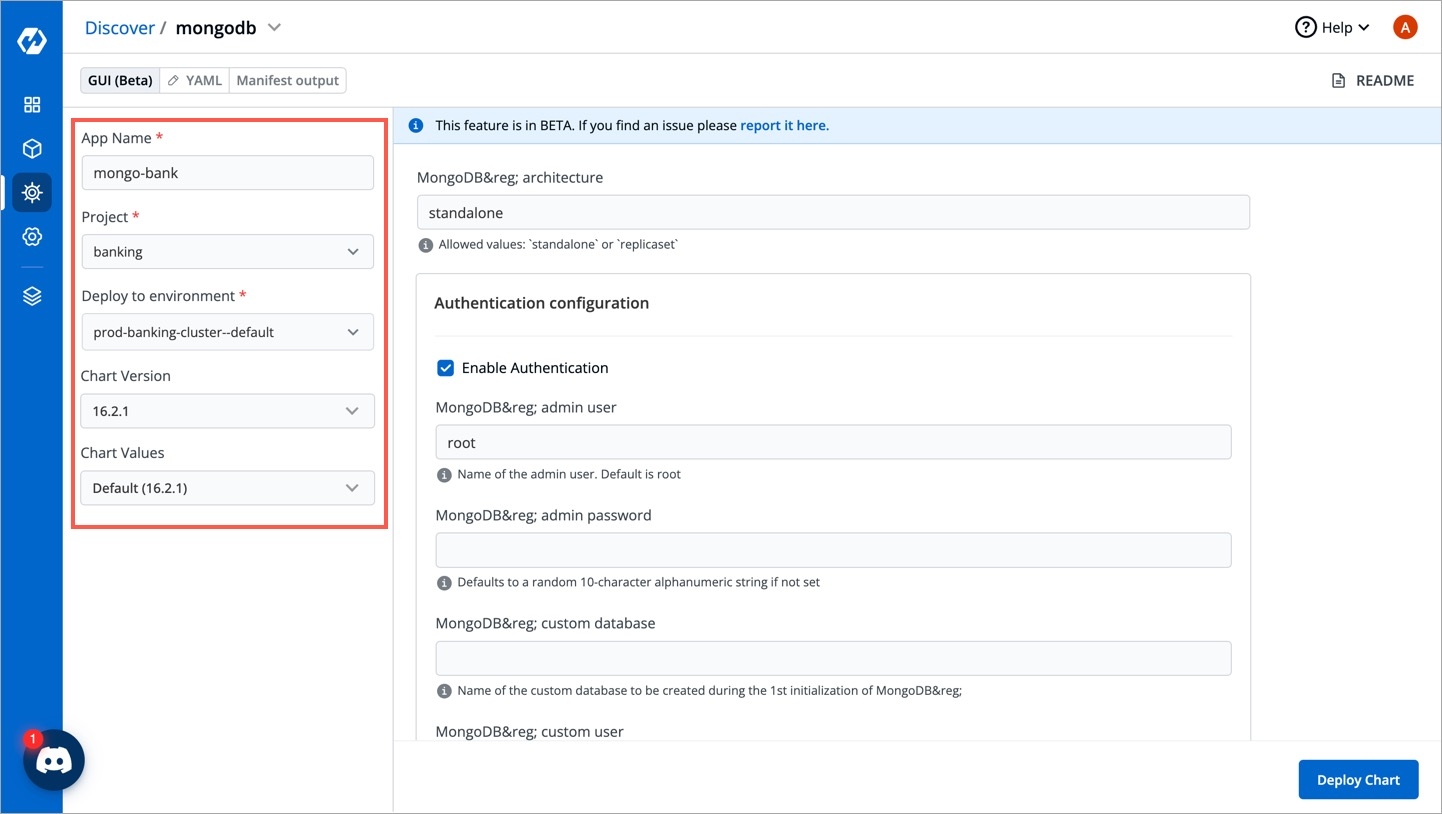
Configure Values
Using GUI
Set the following parameters in the chart.
MongoDB architecture
Available options: Standalone or Replication
MongoDB admin user
Username of admin
MongoDB admin password
Password for the admin
MongoDB custom user
Username of new user to create
Password for MongoDB custom user
Password for the new user. Ignored if existing secret is provided
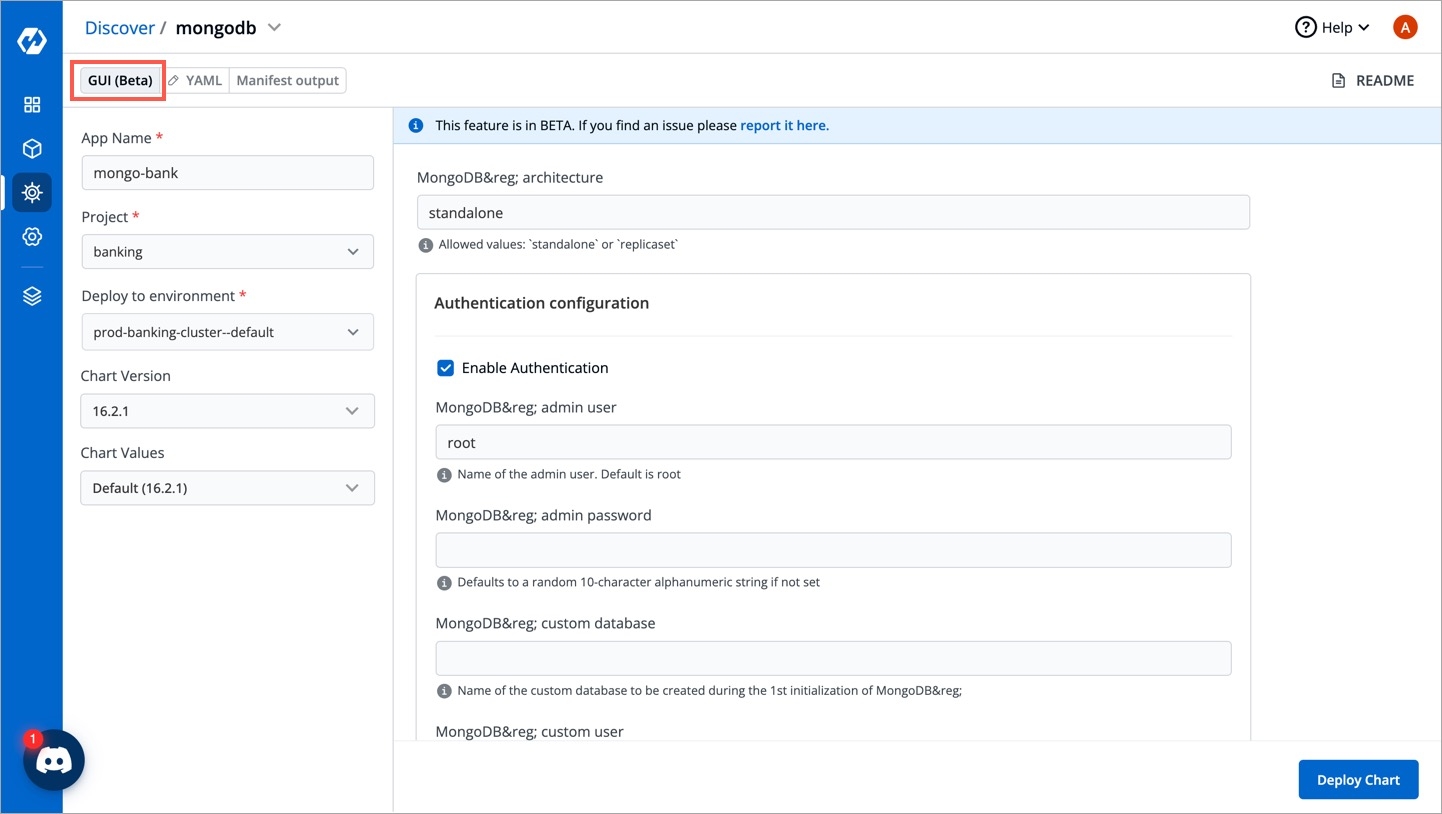
Using YAML
You can configure the values.yaml according to your project's requirements. To learn about different parameters used in the chart, you can check Documentation of mongodb Helm chart

Click on Deploy Chart once you have finished configuring the chart.
3. Check the Status of Deployment
After clicking on Deploy Chart, you will be redirected to App Details page that shows the deployment status of the chart. The Status of the chart should be Healthy. It might take few seconds after initiating the deployment.
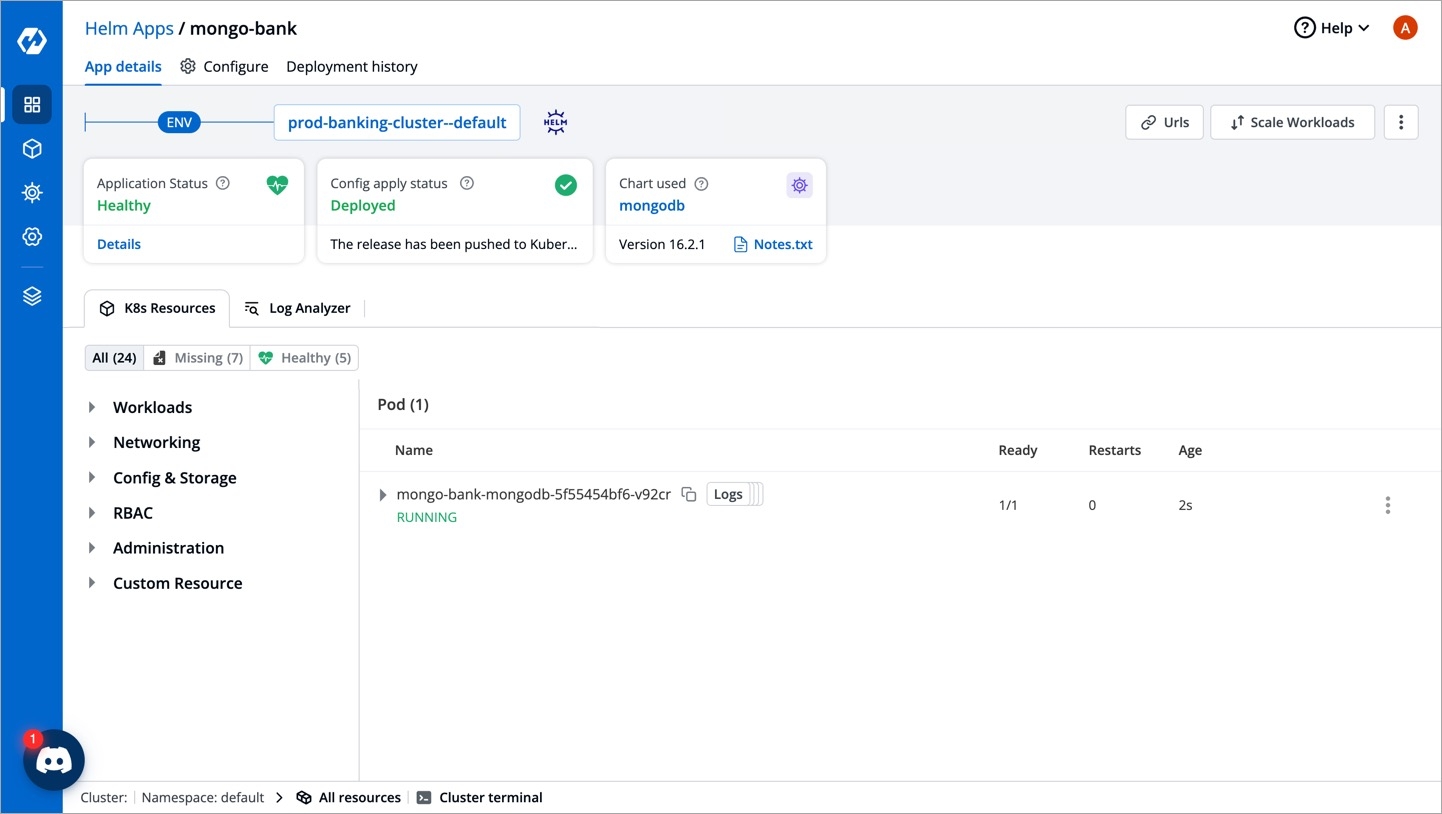
In case the status of the deployment is Degraded or takes a long time to get deployed, click on Status or check the logs of the pods to debug the issue.
4. Extract the Service name
Copy the service name, it will be used to connect your application to mongoDB.

Last updated